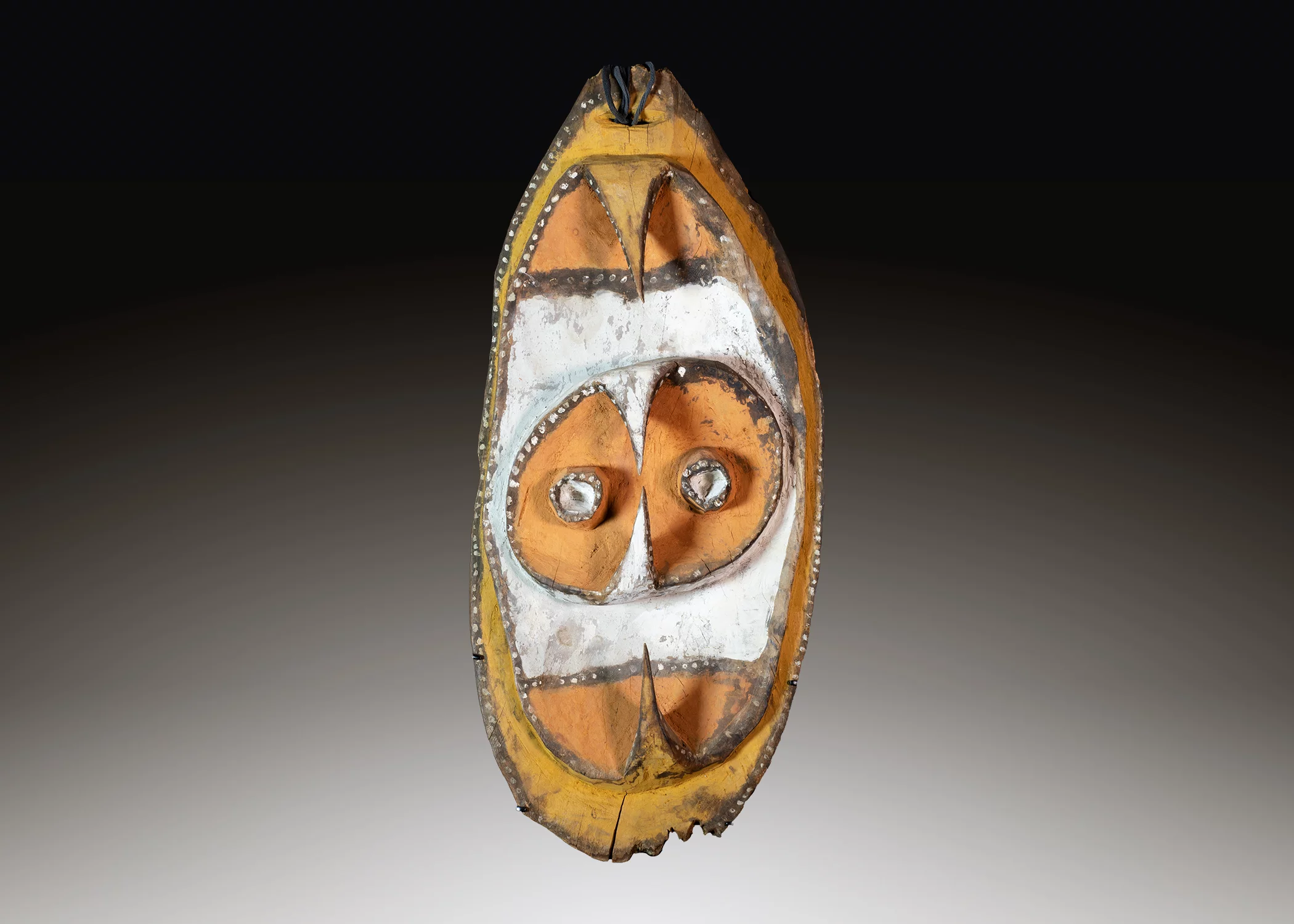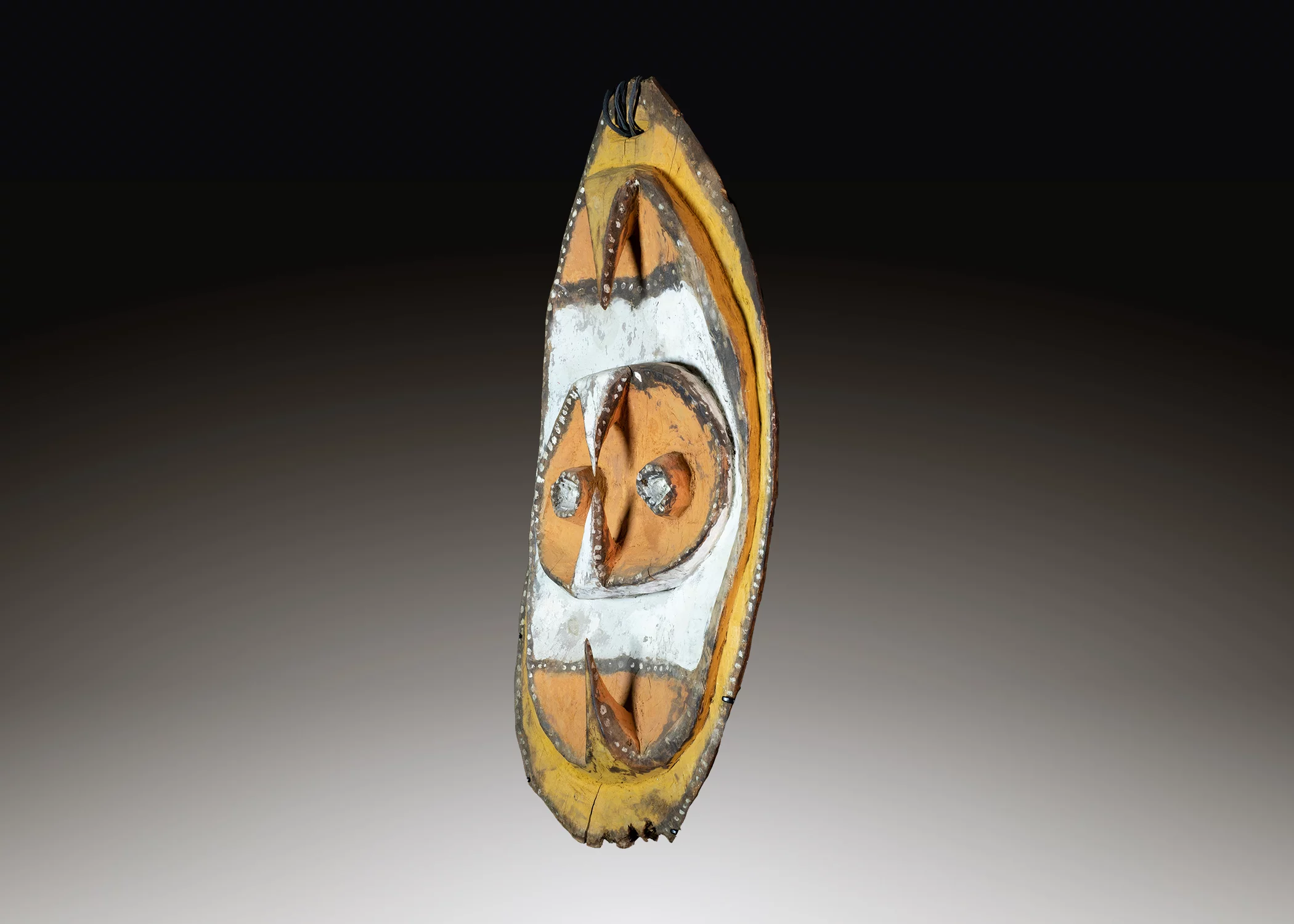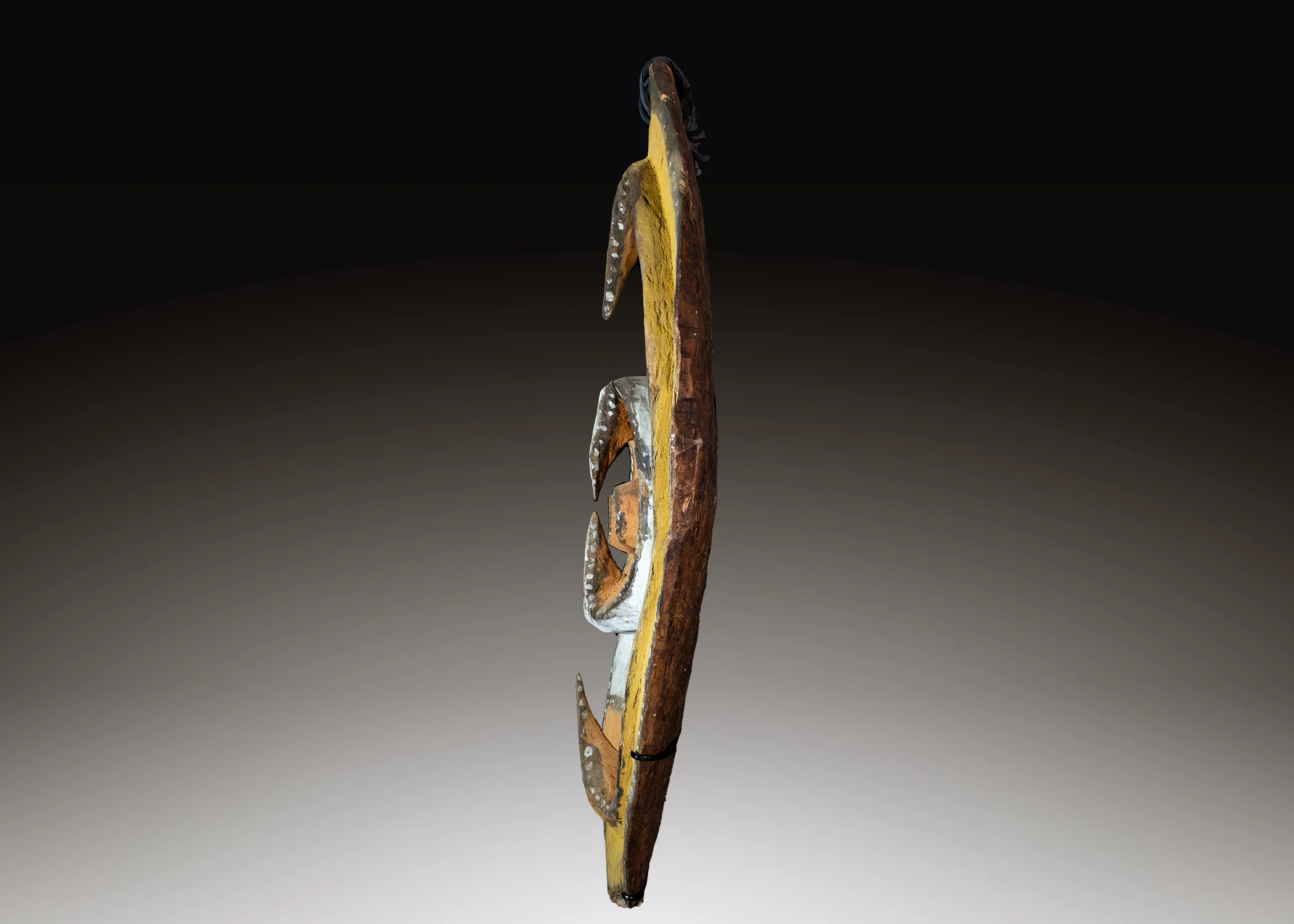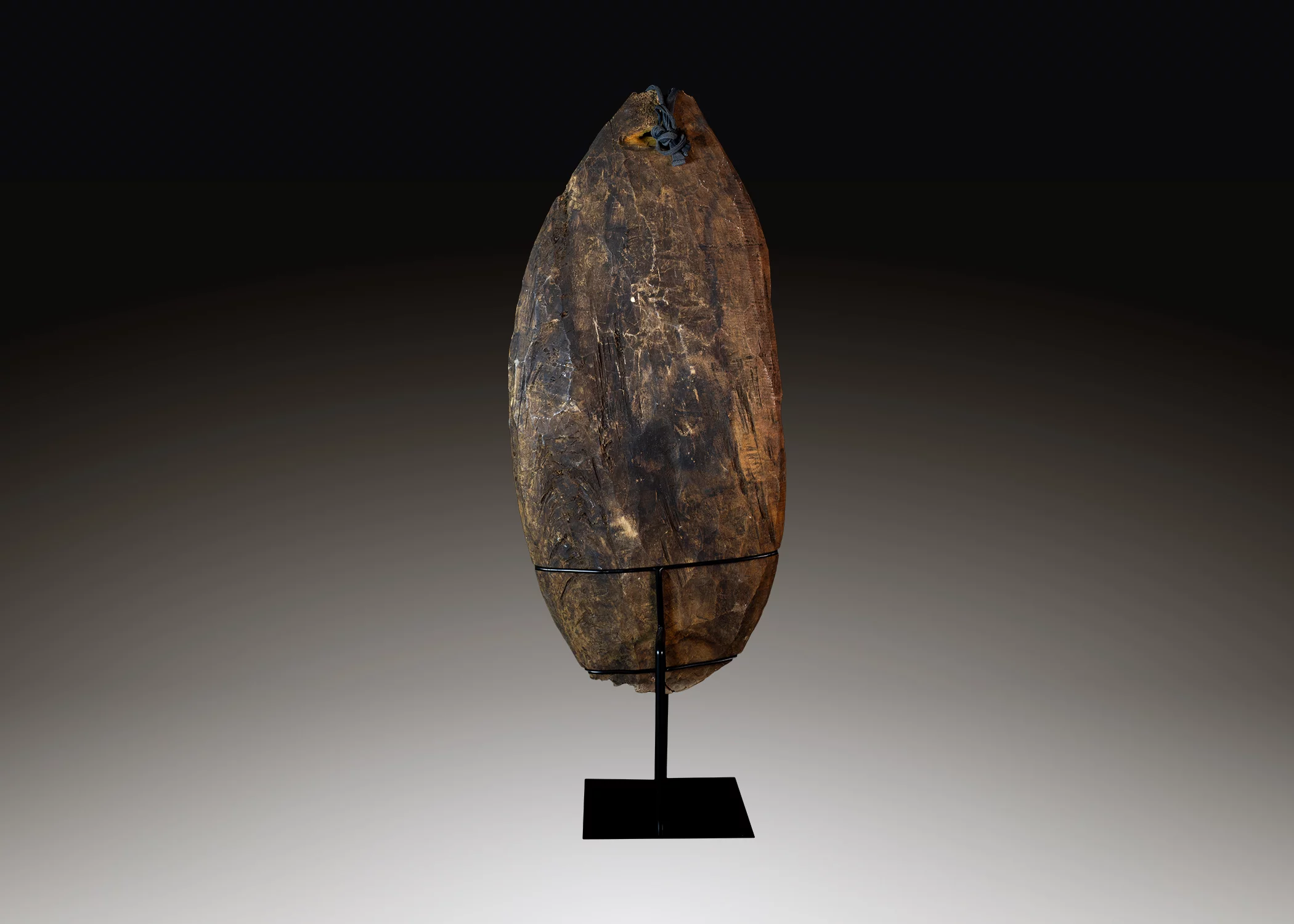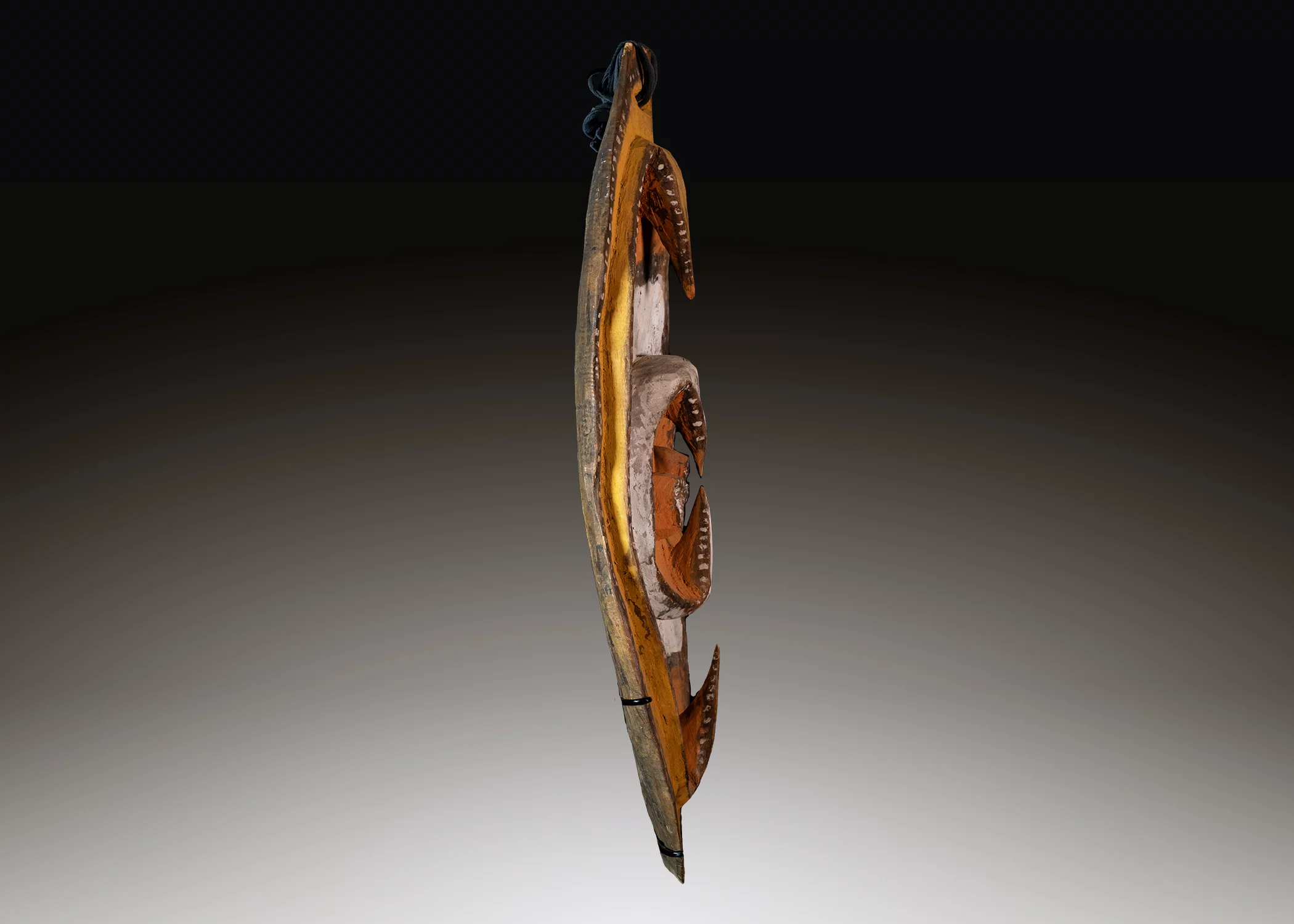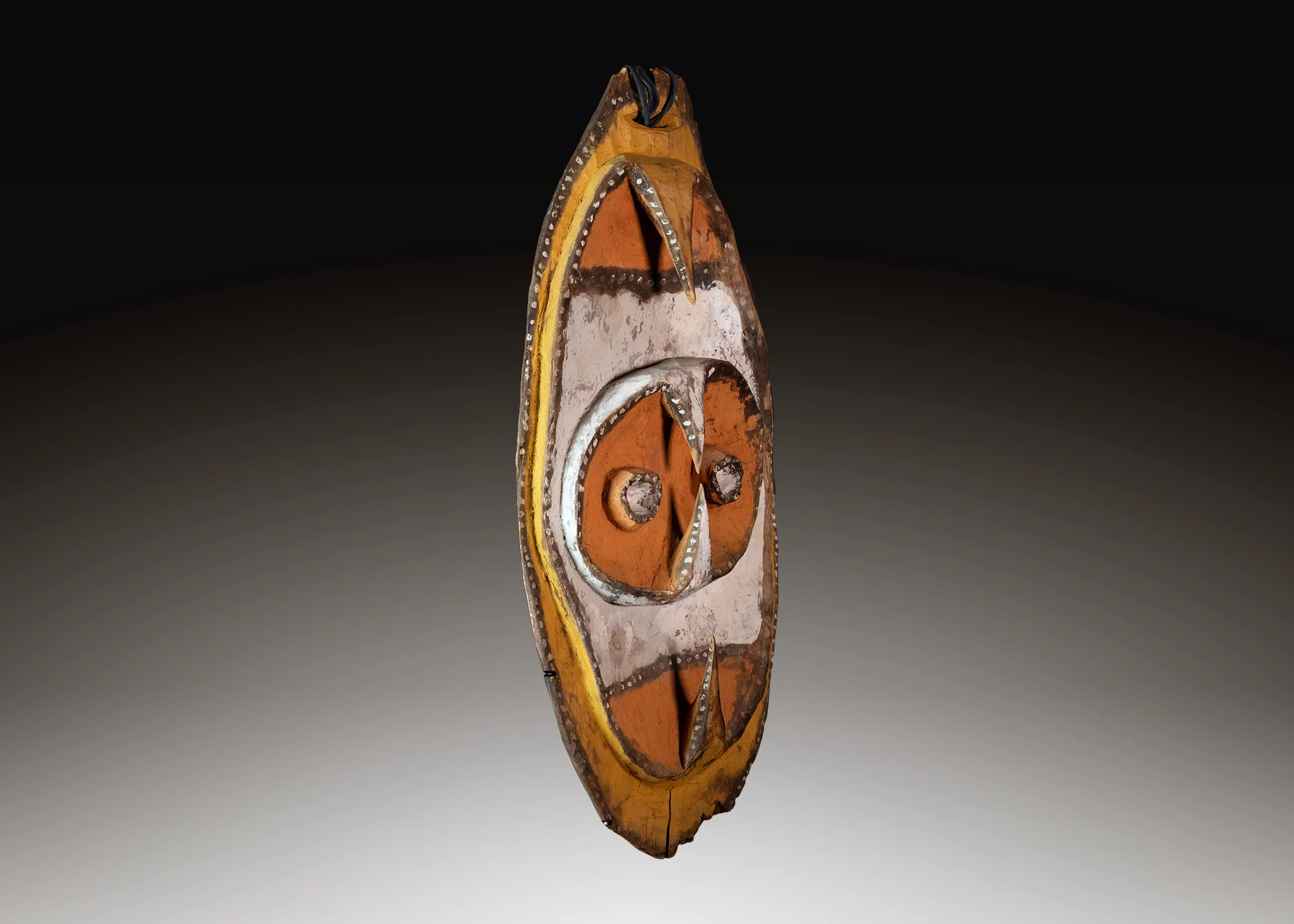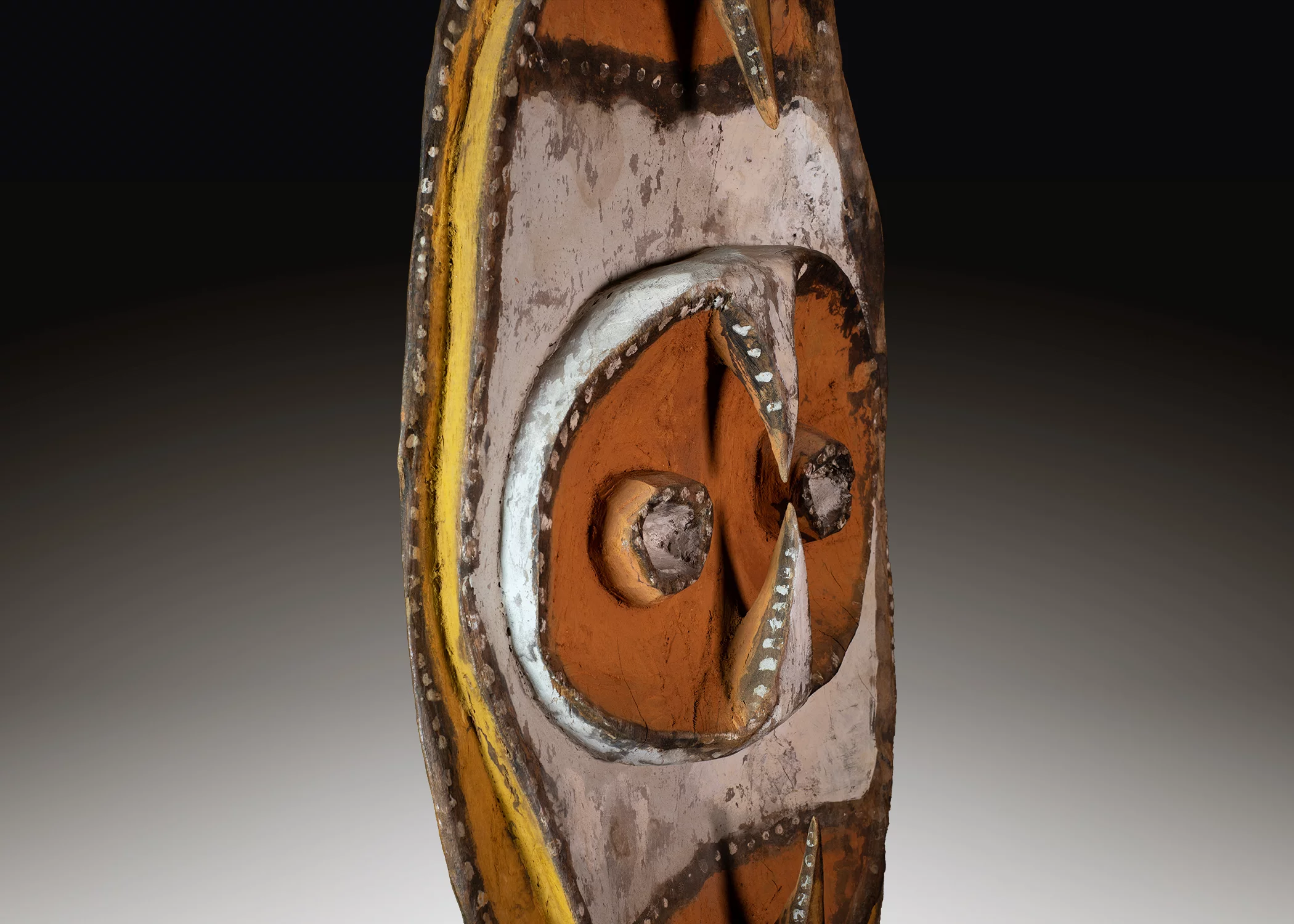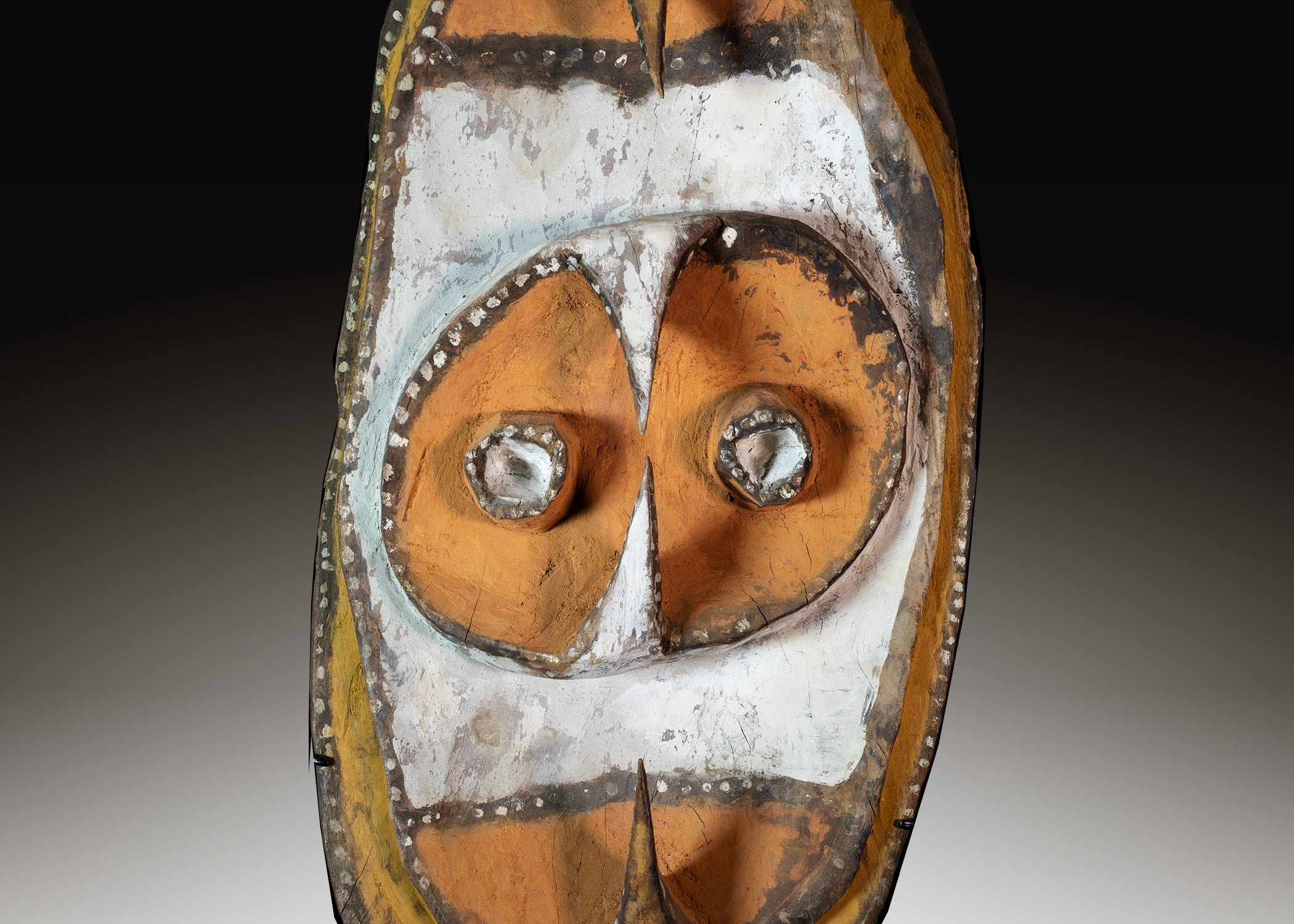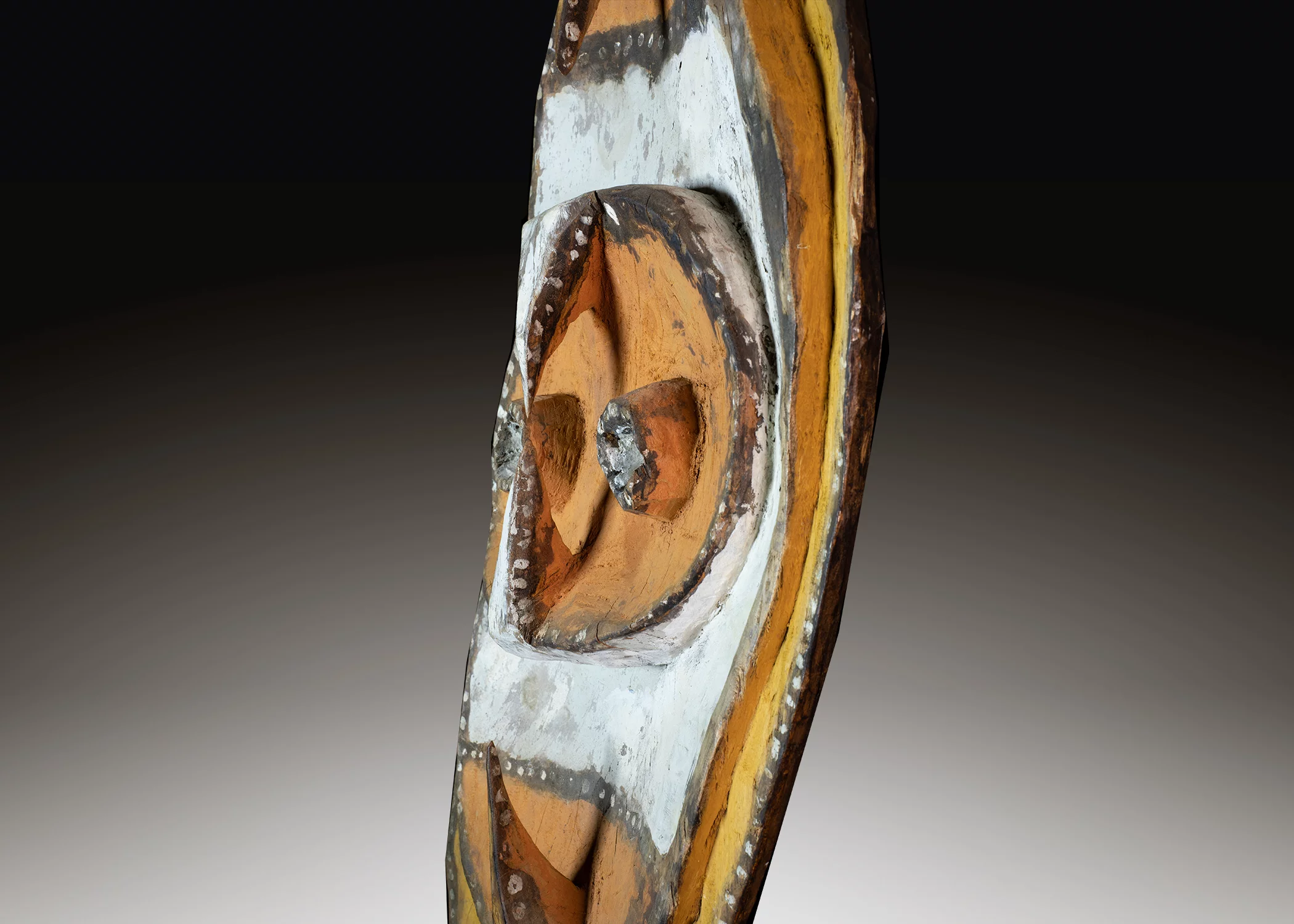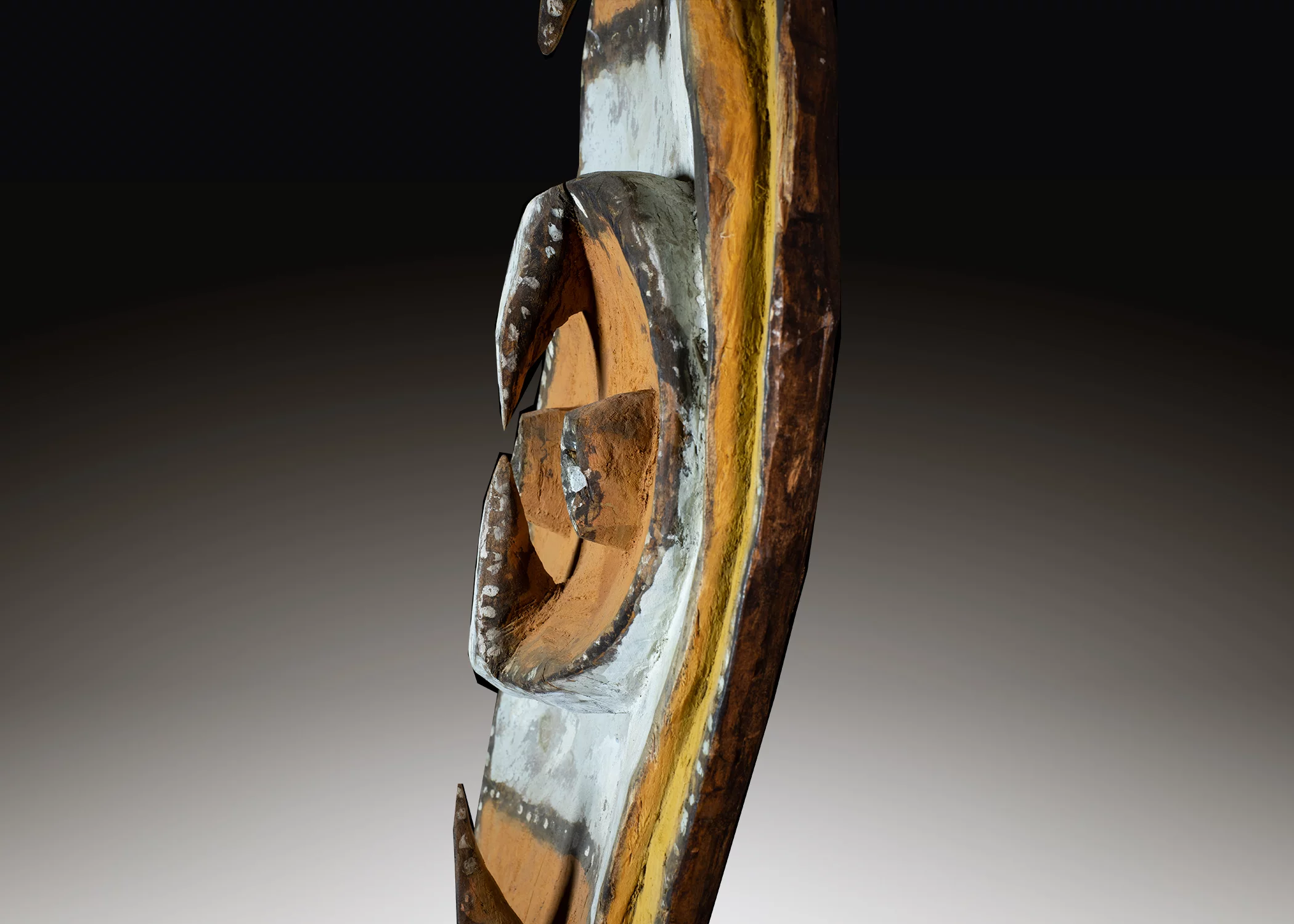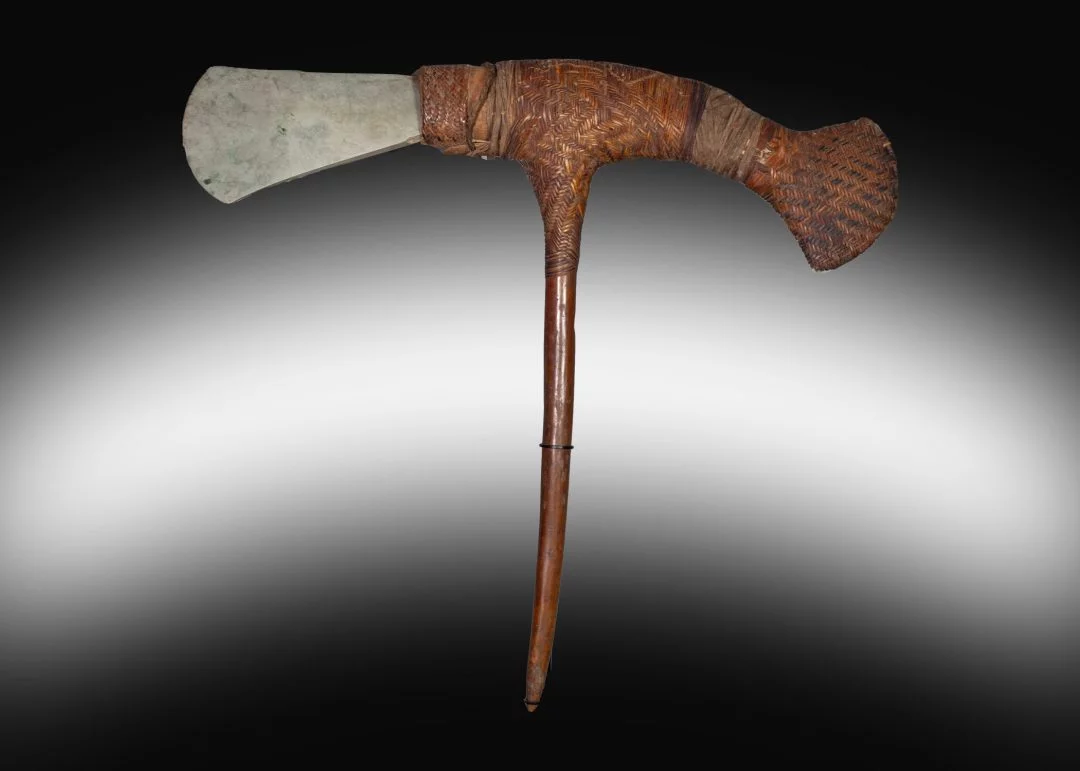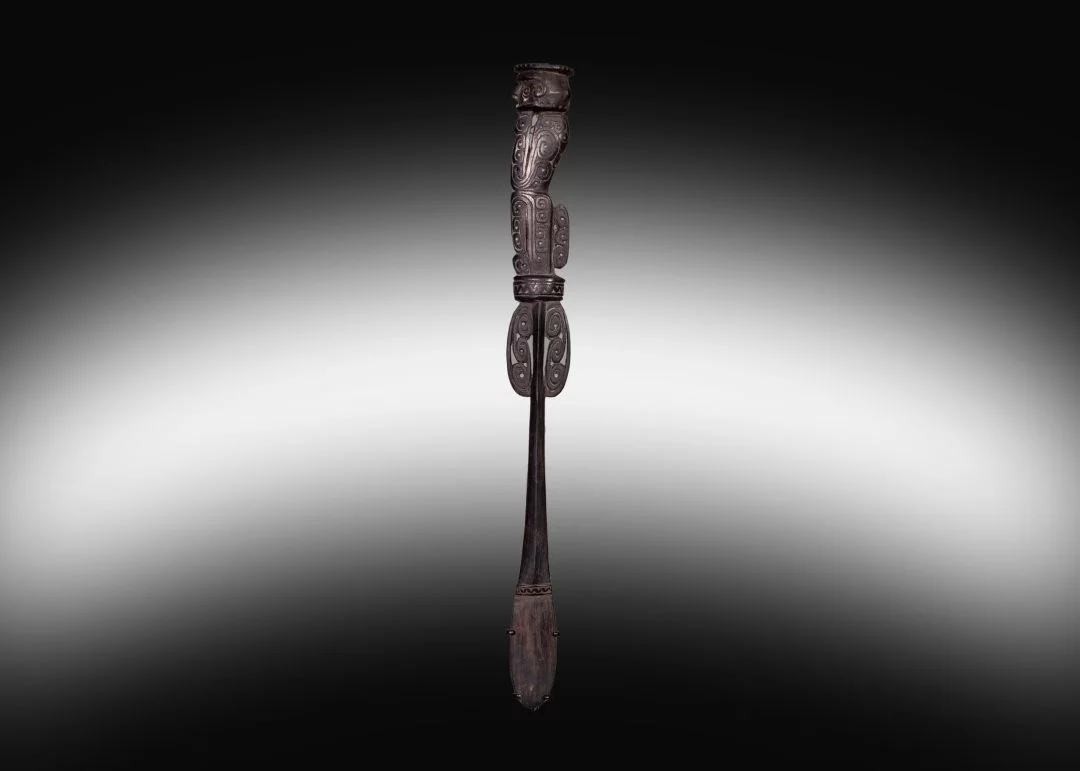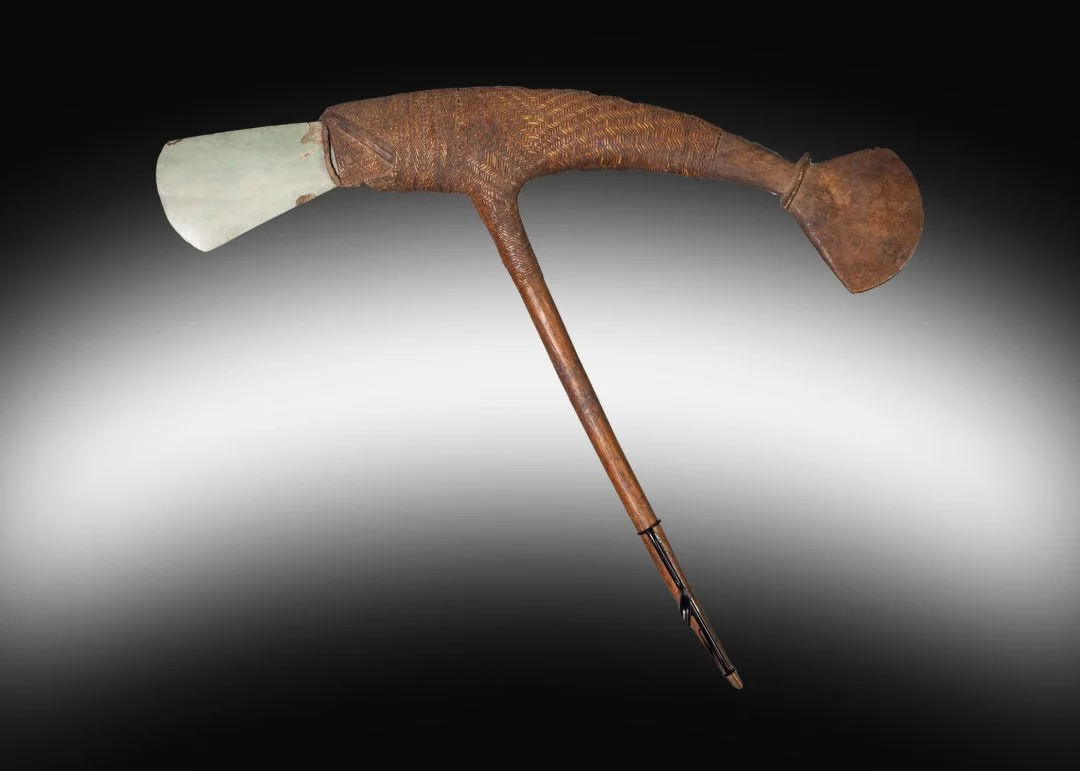Garra Figure II
-
TitleGarra Figure II
-
ArtistBahinemo people
-
LocationHunstein Mountains, East Sepik Province
-
DateMid 20th Century
- Size31cm (W) x 74cm (H)
-
Price$5,500.00
Early garra mid 20th Cent, displayed on a custom metal black stand .
The Met Museum
“In former times, the focus of artistic and religious life among the Bahinemo people of the Hunstein mountains south of the middle Sepik River was the men’s ceremonial house, in which initiation and other rites took place and sacred objects, collectively called gra or garra, were kept. Bahinemo artists created two distinct forms of hook figures: flat, mask-like panels with stylized human faces bracketed by hook-shaped forms and tall slender images, intended to be seen in profile, consisting of a series of concentric hooks surrounding a central projection. Mask-like forms were associated, broadly, with forest spirits, while the slender profile images were connected with water spirits, their curving hooks identified, in some cases, as catfish whiskers. Like the hook figures (yipwon) of the Yimam people, Bahinemo hook images formerly served as hunting helpers, their supernatural powers assisting in the capture of game. They also played a role in male initiation ceremonies, in which they were carried by initiated men during dances.”‘
Early garra mid 20th Cent, displayed on a custom metal black stand .
The Met Museum
“In former times, the focus of artistic and religious life among the Bahinemo people of the Hunstein mountains south of the middle Sepik River was the men’s ceremonial house, in which initiation and other rites took place and sacred objects, collectively called gra or garra, were kept. Bahinemo artists created two distinct forms of hook figures: flat, mask-like panels with stylized human faces bracketed by hook-shaped forms and tall slender images, intended to be seen in profile, consisting of a series of concentric hooks surrounding a central projection. Mask-like forms were associated, broadly, with forest spirits, while the slender profile images were connected with water spirits, their curving hooks identified, in some cases, as catfish whiskers. Like the hook figures (yipwon) of the Yimam people, Bahinemo hook images formerly served as hunting helpers, their supernatural powers assisting in the capture of game. They also played a role in male initiation ceremonies, in which they were carried by initiated men during dances.”‘
